A Photographer’s Hilarious Photos of Being Stuck in Quarantine with Ex-Wife and Mother
![]()
Neil Kramer has spent close to a year quarantining with his ex-wife and mother in a two-bedroom, one-bathroom Queens, New York City rent-controlled compact apartment. This has produced a sitcom of chaotically humorous photographs that are actually based on real-life situations that have occurred while they are holed up.
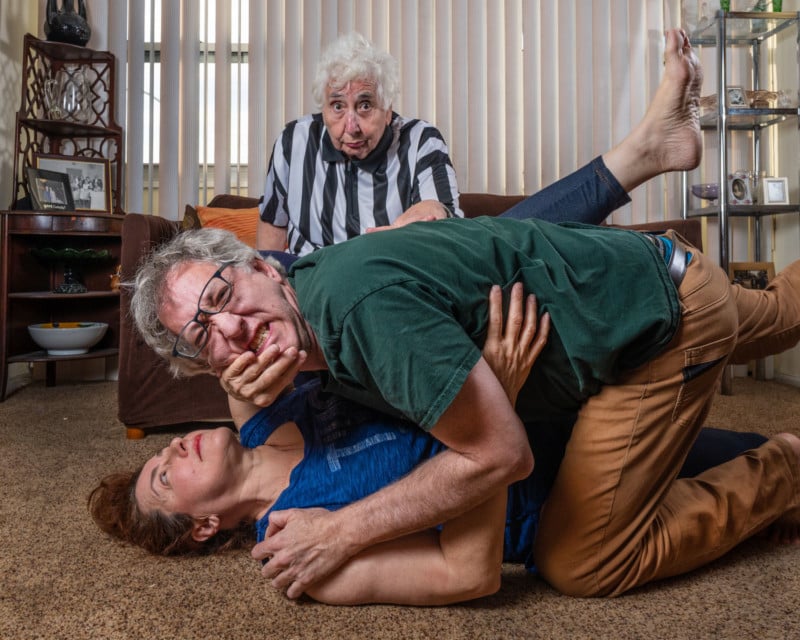
“At first, she was just staying here a few weeks,” Kramer, an event/street photographer and TV writer, tells PetaPixel. “Then the pandemic hit and realized that she was too scared to be alone and looking for an apartment in LA, so basically stayed here… we didn’t realize it would end up being a year.”
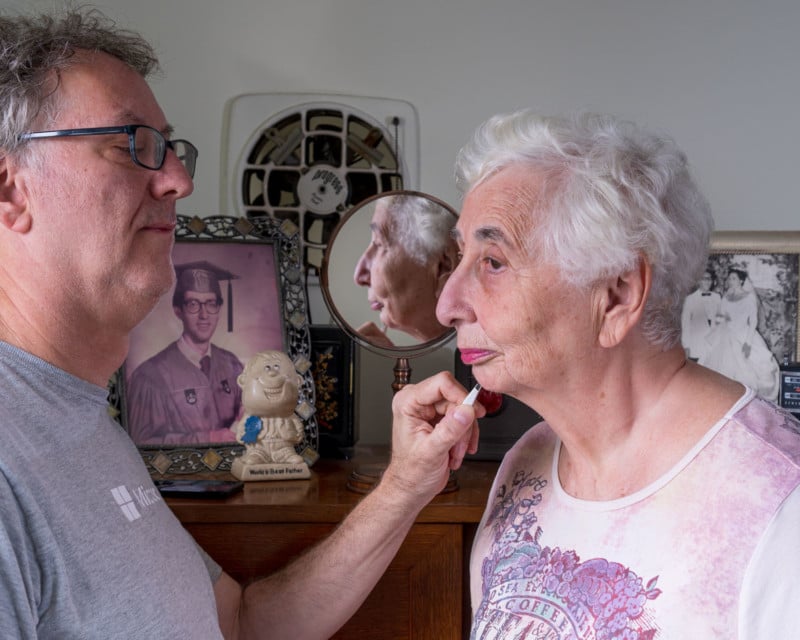
Mother Elaine took the master bedroom, and the ex-wife, Sophia Lansky, the other bedroom. Kramer was relegated to the lumpy couch in the living room. This living situation soon became stressful. His kooky coronavirus pod was not working, and Kramer considered family therapy.
But instead, Kramer decided to use phototherapy! They would recreate a stressful situation that had occurred in the recent past and do a complete photoshoot with mother and his ex-wife, Sophia, a Hebrew and Russian language translator and actress. Maybe he figured that if they rethought it, they could resolve it.
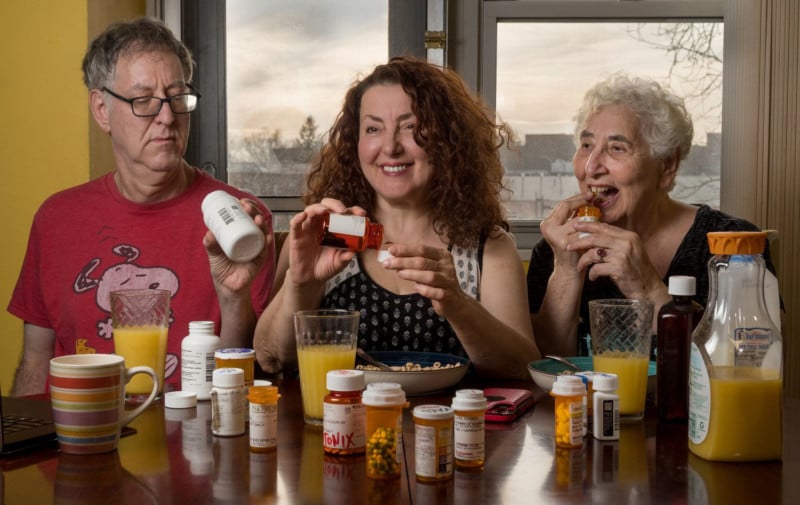
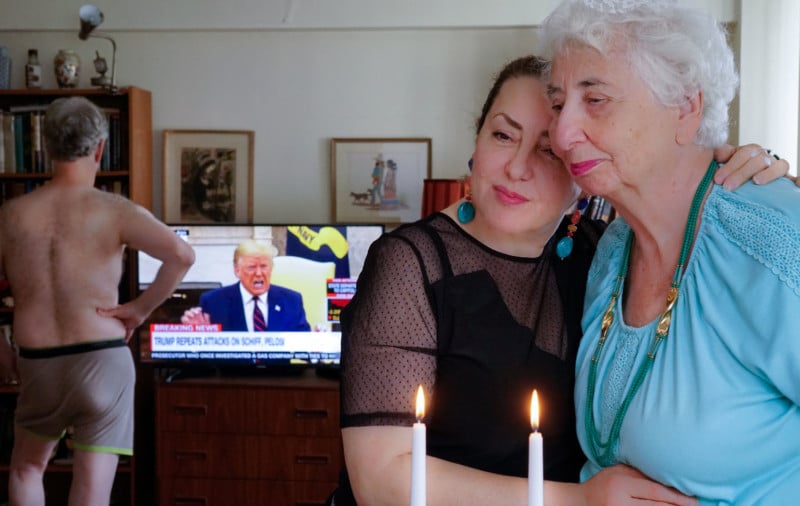
I actually started the project more documentary style, but it just didn’t work. I realized that a photographer has to be somewhat an observer, and when we are scrubbing groceries, no one wants the photographer just standing there taking photos. It’s like that perennial case of the photojournalist who captures the guy dying on the street but doesn’t help. So was pushed to use my more film school approach of restaging stuff.
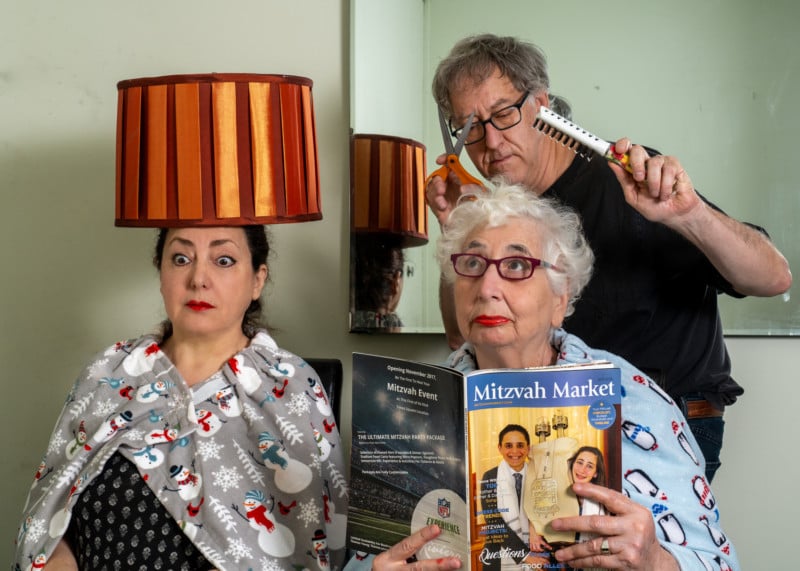
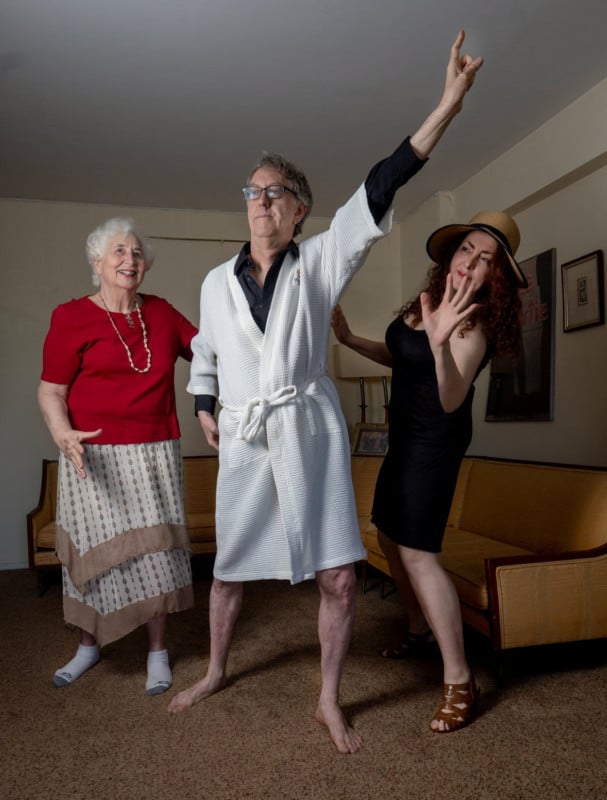
How did his ex-wife even agree to these crazy photo sessions?
“Well, she knows me as a slightly crazy artsy type, so it wasn’t surprising,” the photographer says. “But she figured it was just going to be seen by a few friends on Facebook.”
And then it went viral on the web.
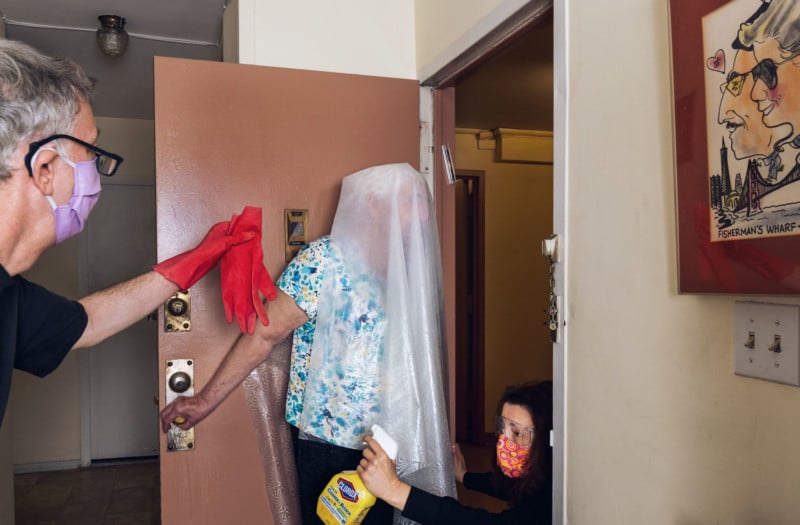
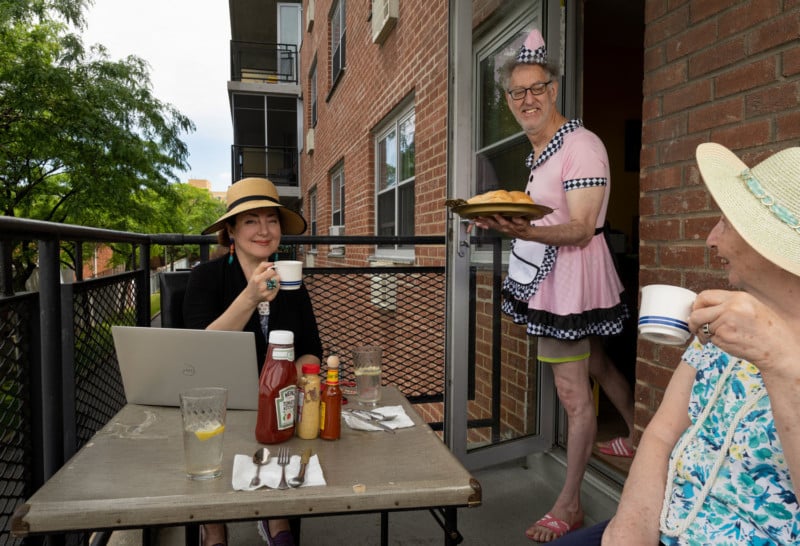
Kramer has a Sony Alpha a6400 with a Sony E 35mm f/1.8 OSS, Sony E 50mm f/1.8 OSS, and a Sigma 16mm f/1.4 DC DN Contemporary Lens with a Godox Speedlight and a Neewer softbox. He started with the Sony Alpha a5100 and then the Sony Alpha a6000.
“To be honest, once I bought a few lenses, I got too cheap to upgrade,” Kramer says. “If I can do more work, I will immediately get a newer full-frame Sony.”
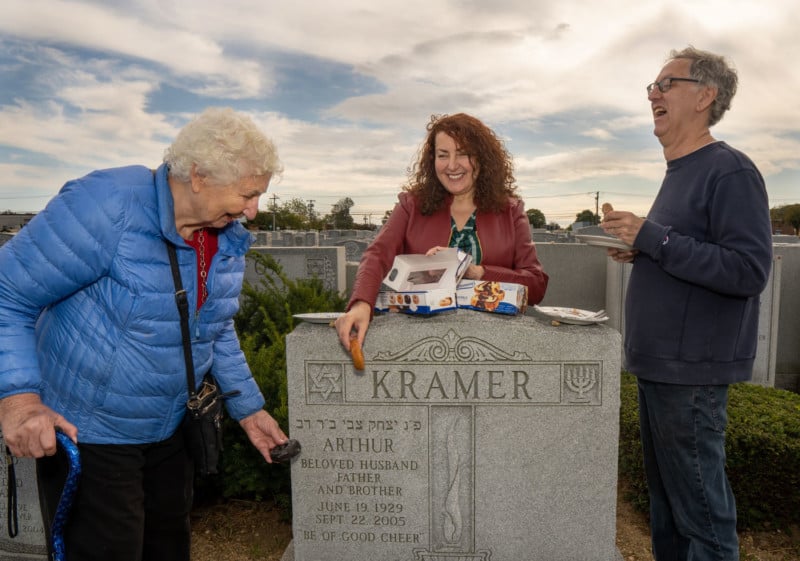
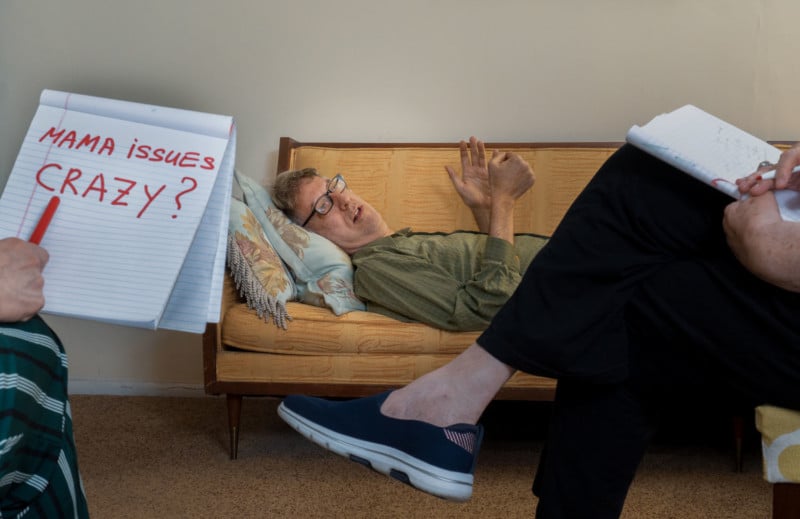
One of the problems is that he has to be in the photos as well, and if he is going to enact complicated scenes like when all 3 of them are doing different things in the bathroom, how do you keep continuously pressing the shutter?
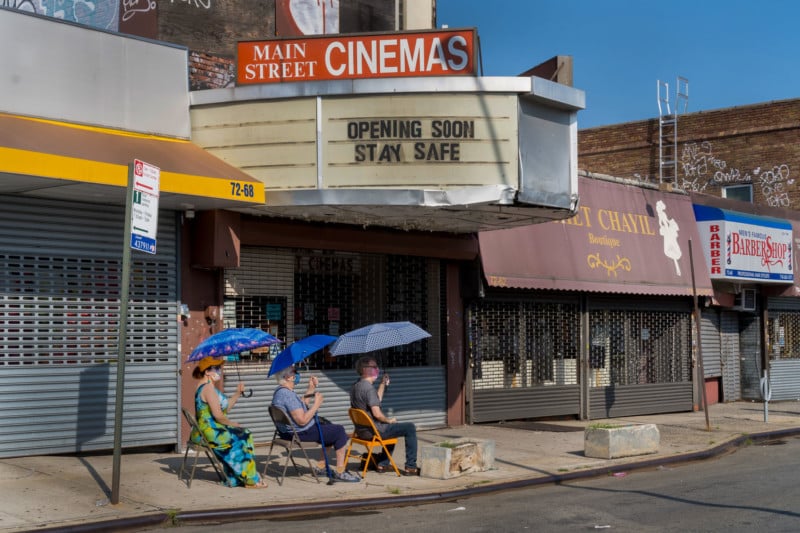
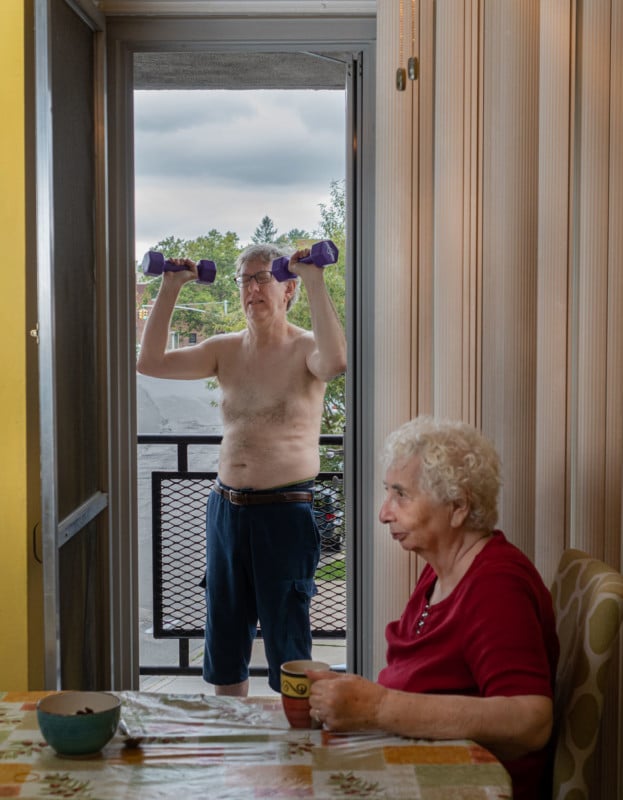
Kramer starts researching the camera and finds the intervalometer.
“I didn’t even know what it was,” he says. “Then I saw some video about using it for time-lapse, so I figured you could use it instead of a timer but for multi-shots.” Idea!! What if he set the intervalometer to shoot 6-7 shots 10 seconds apart?
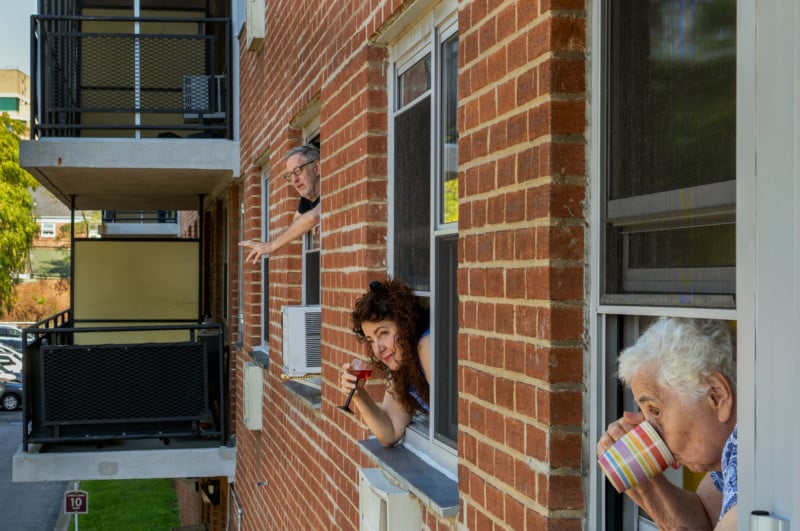
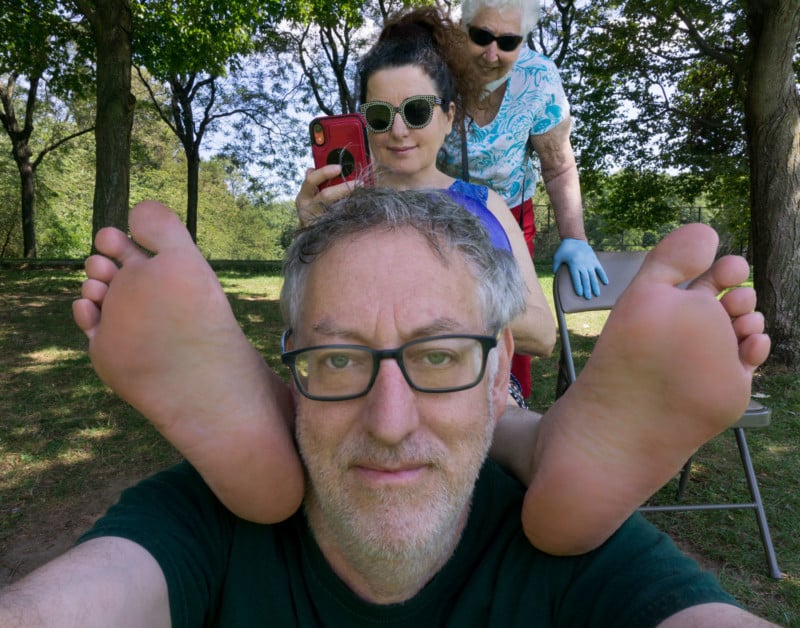
And what about viewing the images to get the pose/expression right? No problem there too! He loaded Sony Imaging Edge on his Dell, and now there was a monitor to look at with tethering. Although Kramer shoots in RAW, he does not “use the editing part. I later put it into Adobe Lightroom.”
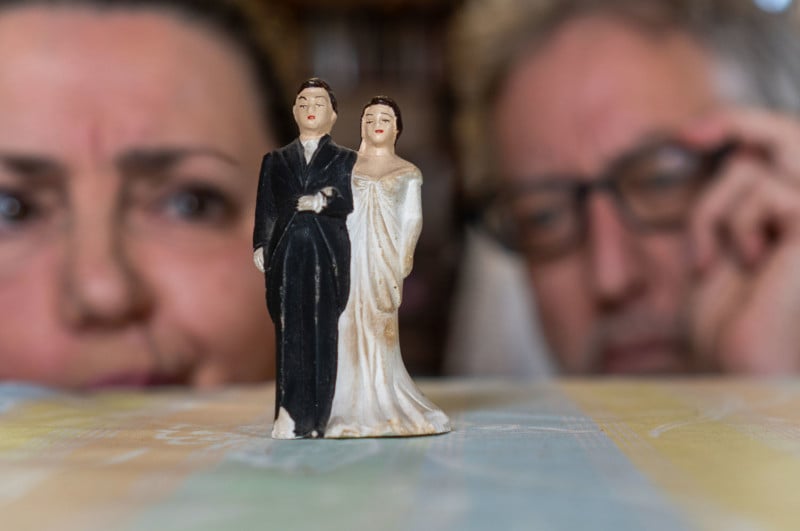
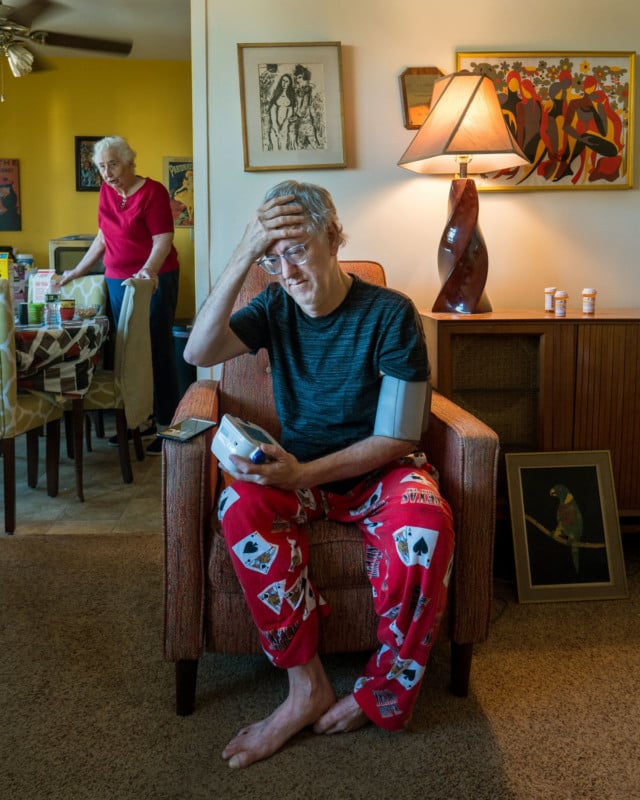
He restricts the shooting to about 30 frames per session.
“I really had to overcome my perfectionism because I had basically unpaid actresses for a whole year,” Kramer says. “In a way, I had to learn to collaborate more. Like sitting with shots afterwards and letting them choose which ones they liked.” He even coaxes them to work on his photo projects by bribing them with Dunkin Donuts.
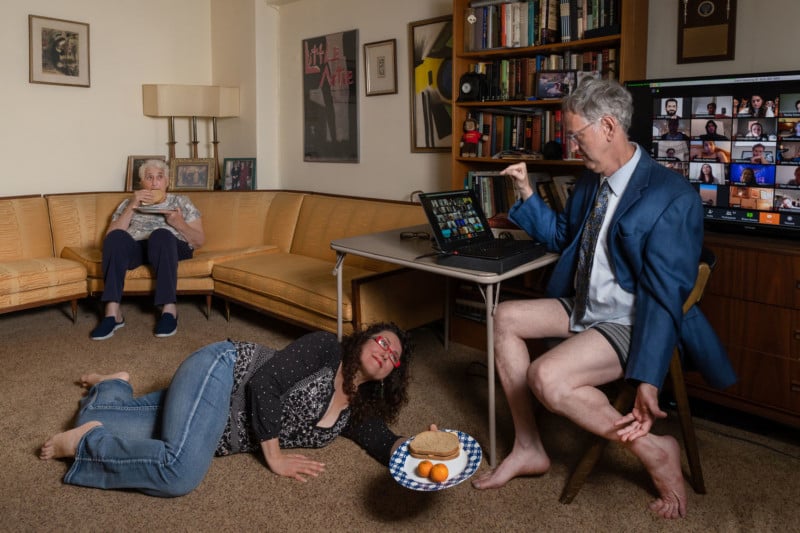
In the Sony a6000, you used to be able to focus with the phone, but they stopped it with the latest cameras,” explains Kramer. “Frankly, the tethering is a pain in the ass…and everyone starts looking at themselves on the monitor… [and after the shoot], so a few of the shots are not the best shots, but the ones where her hair looks best.
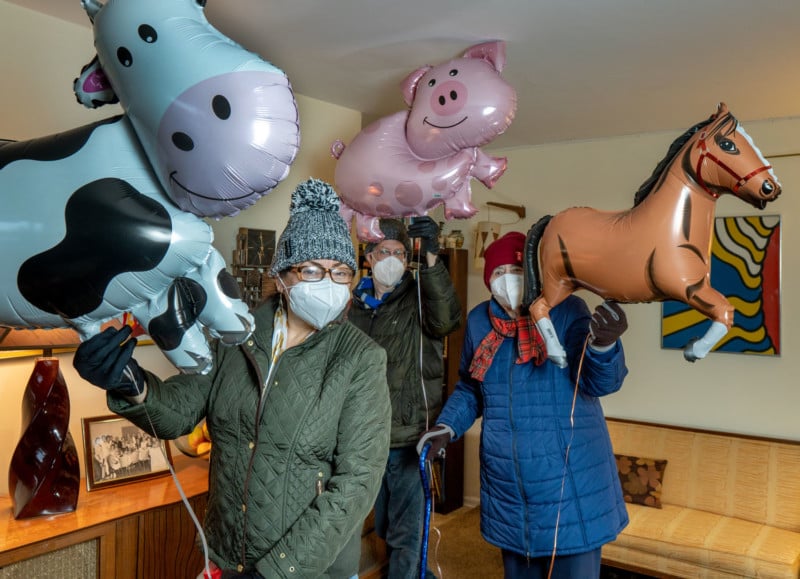
The Sigma 16mm f/1.4 was never used in the past, but now in the tight quarters, it became the lens of choice “90 percent of the time” to get everybody in the frame.
“Although it distorts near the edges, I suppose, it helps give the photos a slightly off look,” the photographer says.
Kramer is now getting better at his photography and discovering new things. “I’ve made a few prints…. just at Walgreen’s, and I have already seen that the colors are way off…. so, I have a lot to learn, and even buy… like a better monitor that is calibrated.”
My father was one of those crazy guys with a super 8 camera and always taking photos, so he was my first connection to photography. I know this will make people hate me, but I was a bit turned off early on by darkroom stuff being a wimpy, hypochondriac New Yorker worried about chemicals, so I really didn’t get into photography until the iPhone, like many others.
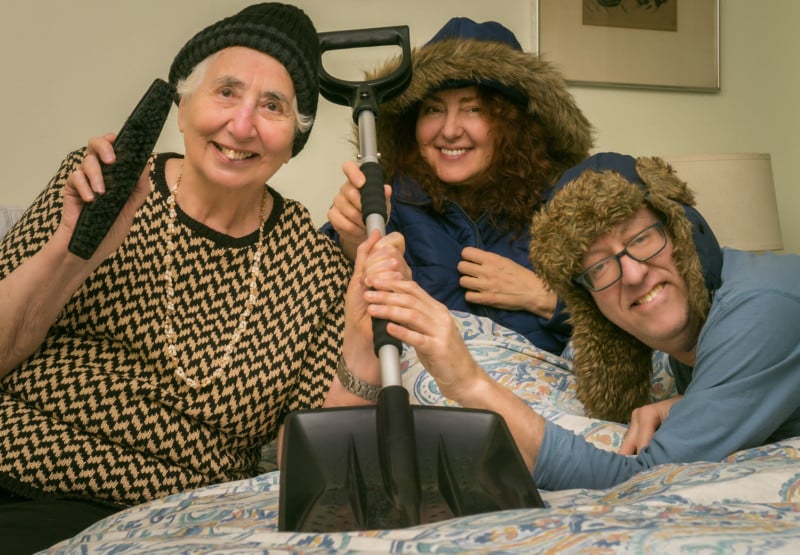
I had to quickly learn compositing with Photoshop, like in the shot where we are all looking out of the window. Sony and Godox didn’t have the power to give me what I wanted, so I experimented with three shots composited. I was so shocked at how easy it was and almost felt ashamed of breaking the law of realism, but at the same time, it was cool, certainly cool, and I did not even figure it out!
Kramer enjoyed street photography in the past, so “once or twice [during the pandemic] tried street photography, which I love, but it seemed too scary and not fun because everyone in the street looked miserable.”
The photos have a humorous side, but Kramer does not want to shoot just funny pictures. These are realistic and mimic situations that have occurred, like struggling to use the one bathroom, listening to pandemic press conferences, and all the disinfecting rituals to keep his mother, who is in her eighties, safe.
But even though some of the photos are funny, I don’t really think of this project as funny. We might have reacted as funny, but this last year was actually pretty scary—especially those first few months when Queens was the epicenter. If I just posted humorous photos, I don’t think the project would have been as impactful. You almost need the reality in between, so not just farce. We do have a pact to keep it somehow real. Even the crazy shots are based on real experiences we had the day before, and we were just too stressed to deal with it. So, we deal with it in a photo.
They even had a Macy’s Thanksgiving Parade right inside their house, with all three handling animal-shaped helium-filled balloons representing the floats.
Although this experience has mostly been therapy, it has been a great learning experience. “Shooting in your tiny apartment is way harder than being in a studio. And dealing with your family can be more frustrating than a paid model. They usually give you ten minutes before some TV show is going to be on.”
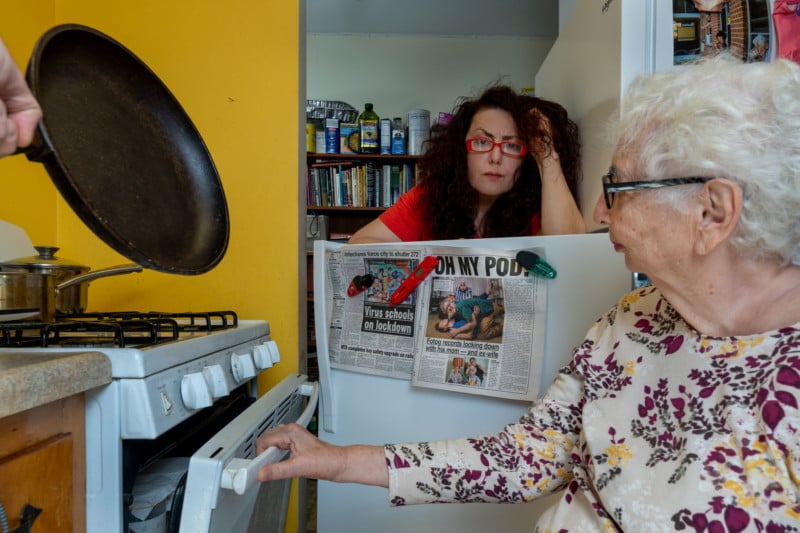
Kramer has received wide recognition for his photography, which he originally just posted on Instagram. It was very soon picked up by The New York Post, The Washington Post, The New York Times, and a few TV appearances, including NBC’s Today Show and others. They have even been featured in The Times of Israel. And he keeps getting requests from England, Germany, Russia, Slovenia, and others for interviews.
This body of work has also risen to fine art status. It has been exhibited at prestigious galleries and shows, including The International Center of Photography, Los Angeles Center of Photography, The Museum of the City of New York, and four more, including one in Italy. Kramer even plans to check out interest from art galleries in 2021.
And this photography has even made Kramer wiser to the ways of the world.
Shooting two women, both over 35, makes me more aware of how photography in some ways is a burden on women sometimes, like I can just look crappy, and no one cares…. but the photo world, especially on Instagram, is so dominated by young perfect women, that it makes other women self-conscious
So, what’s in Kramer’s photographic future? The pandemic may still be around in early 2021 despite the start of vaccinations. He has already amassed 10,000 followers on Instagram who want to see more of his awkward situations, so he will continue his creative impulses and phototherapy, too, as long as this sitcom is on. After all, three’s company!
About the author: Phil Mistry is a photographer and teacher based in Atlanta, GA. He started one of the first digital camera classes in New York City at The International Center of Photography in the 90s. He was the director and teacher for Sony/Popular Photography magazine’s Digital Days Workshops. You can reach him via email here.
Image credits: All photos by Neil Kramer and used with permission